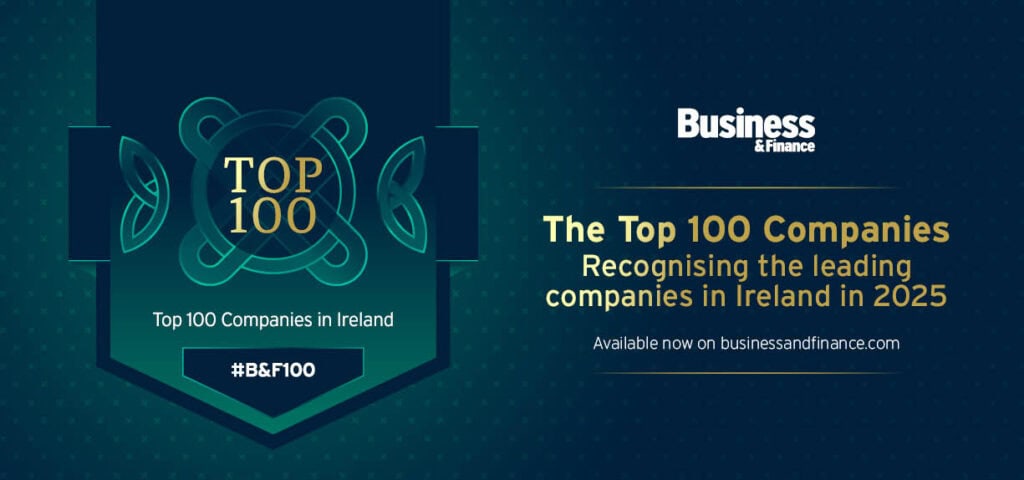An atmosphere of opportunity, innovation and openness characterise the current Irish economic climate, writes John Holden.
Ireland’s recent economic woes appear to have turned a corner. Or at least that’s what it feels like in the Irish business community.
The buzz is palpable. The business community has never been in a more innovative and entrepreneurial mood with government openness, an increasingly skilled workforce and initiatives from organisations like Enterprise Ireland, giving new entrepreneurs the financial support and expertise they need to match their drive to succeed.
The entrepreneurial spirit is not only being fostered among the native population though. Ireland’s economic openness is already a well-established fact among global players like Google, Facebook, Twitter, Pfizer and Boston Scientific. What’s less well known, however, is just how easy it is for a small foreign start-up company to grow their business in Ireland.
Several factors make this one of the optimum locations in the world for local and international business. First and foremost is the Irish business ecosystem. We may live in a globalised world with instant access to communication networks, but making contact with potential kingmakers and major clients is far easier when they’re actually located in the same neighbourhood as you. “We’ve already realised there are many people who wanted to come and start a business here because of the Irish business ecosystem,” explains Naghmeh Reilly, senior executive for Overseas Entrepreneurship at Enterprise Ireland.
At a recent high potential start-up showcase organised by Enterprise Ireland in Dublin, a good number of the new start-ups presented to the public originated from outside of Ireland.
Ukrainian, Volodymyr Pigrukh originally came to Dublin to get his foot in the door of the burgeoning ICT industry and worked for Microsoft, Accenture and Google before becoming the co-founder and CEO of Profitero, a smart retail price consultancy firm. “In 2010, the choice came to set up our new venture in either Dublin or London,” he says. “We chose here because of the ease of registration of the company. We also received good support from Enterprise Ireland who immediately saw the potential to raise money from a variety of stakeholders.”
Being located in Ireland is not only beneficial on account of the presence of so many multinationals. It is also about forging links with well-established indigenous companies. Kevin Wood’s start-up, wastewater cleaning and recycling firm, Kemartek Technologies began in the UK but access to markets and the ease of doing business here led him to the Emerald Isle. “We developed our technology in the UK and then brought it to Ireland and set up an Irish company two years ago,” he says. “We worked closely with Enterprise Ireland through their High Potential Start-Up (HPSU) funding scheme and got local investors, like AIB, involved too.
“I had worked for multinationals in the past and various contacts suggested I should set up business in Ireland because of the supports here for start-up businesses.”
For Wood, it wasn’t just about the ease of access to local markets that brought him to Ireland, but also what access in Ireland could lead to elsewhere. “Our technology has applications in the food industry and Ireland produces enough food for 40 million people per year,” he states. “There is a huge marketplace locally and being an Irish company with Irish patenting, we’ve found we have a really good open audience. But many of the local food industries also have links to the UK and the rest of Europe. So once we prove our technology here with a local company, we can then take it back overseas and around the world on the back of sister company relationships.”
There are other countries with similar open policies to foreign start-ups – Chile, Israel and the Silicon Valley region in California to name a few – but Ireland has advantages lacking elsewhere. Location, language and infrastructure all make Ireland an excellent hub to service the US, Europe, and the Middle East. “That’s one of the main reasons why we have started this programme,” says Reilly. “We want to attract people back to Ireland because we know just how good the conditions are here.”
Irishman Gavin O’Donoghue of Atlas Risk Advisory set up his company with two Californians in Dublin for a number of reasons. “We help multinational corporations to reduce volatility in their earnings from the effects of foreign exchange activity,” he says. “It’s a cloud-based platform which manages the process from end to end with everything from forecasting to monthly reports.”
Being in the cloud, the geographical location of Atlas Risk Advisory Ltd is irrelevant. And despite the fact that the company expects most of their client base to be in the US, they still chose Ireland. “Aside from the late night calls I have to make to customers back in California at unsociable hours, there were many good reasons to base ourselves here in Ireland rather than across the pond,” says O’Donoghue. “The support given here to start-ups is fantastic. Enterprise Ireland has been great to deal with, and have been involved since the early stages of development of our business model. We now have a great office space and excellent broadband, which is essential to a cloud based system like ours.”
Similarly, Robert Nutty, CEO of Kjaya Medical, a start-up company co-located in Ireland and the US, which provides cloud-based administrative software to x ray departments in hospitals, has found establishing networks and contacts far easier here than in the US. “There’s a more fluid business environment here,” he says. We’ve had support from Enterprise Ireland and the IDA and there are good professional services available in terms of taxation and accounting. We can now rely on the network of embassies and the Enterprise Ireland offices to grow in Europe. We have gotten to meet the right people very quickly. The difference in the US is that you would have to do all the groundwork yourself. Here, you’re able to get into the system and you’re immediately taken seriously when you have Enterprise Ireland funding. It’s almost like a badge of approval.”
All the support networks in the world won’t amount to much if you don’t have the capital to start your company. There is good news on that front also. The amount of seed capital needed for start-ups has dramatically decreased. For the right projects, there is access to significant start-up funding. In fact, measured on a per capita basis, Ireland has more venture funding available than in any other country in Europe. Over €800 million is available through seed, venture and angel capital firms.
In October 2011, Enterprise Ireland launched a €10m fund to support the identification and development of overseas entrepreneurs. Earlier this year, a new start-up entrepreneur visa programme was announced by the Government which will make it easier to attract start-ups from markets outside the EU.
Overseas start-ups
“The message we’re giving is that Enterprise Ireland are looking for overseas start-ups,” says Reilly.
The Irish education system has always had a good international reputation and of late, a focus on training in areas like science, engineering, technology, and IT, means there are well qualified staff here with the specific skills sets needed for many growing industries.
“Our graduates are very well educated and we already have a wealth of people from abroad working here so if language skills are needed there’s ample choice here too, says Reilly.”
Robert Nutty, CEO of Kjaya Medical, requires niche expertise from his staff and he knows he can find it here. “Tallaght Hospital was one of the first places to take on the original type of technology we’re providing in Europe. Kjaya Medical is the second generation of this technology that operates in the cloud rather than just on local networks,” explains Nutty.
“We want to grow the company here and can see that people here understand our needs. There are two skills needed from the local workforce – IT skills, particularly in the area of cloud computing. Secondly, we need people who understand what it’s like to work in hospitals. We’re able to find those people here.”
Enterprise Ireland supports incoming entrepreneurs who have credible, innovative and ambitious start-up plans, with equity investments and a range of practical assistance including introductions, development programmes, free access to private sector mentors and hands–on help in export markets across the globe.
*This article was originally published in Doing Business in Ireland 2012.





